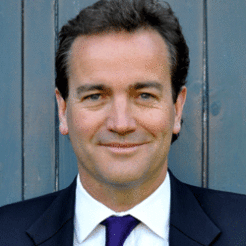Too many civil society organisations saw the Work Programme as a “funding exercise” rather than a means of getting people into work, Nick Hurd said this week.
Speaking at an event on Wednesday hosted by Bates Wells Braithwaite and E3M to discuss the progress of the Offender Rehabilitation Bill, the minister for civil society said he wanted to be really clear that the probation service reforms are “not a funding exercise for the sector”.
He said that too much of the “noise” around the Work Programme had sounded to him like a sense of entitlement from the voluntary sector that the programme had been designed as a funding exercise. It wasn’t, he said – it was about getting people into work.
So now civil society groups must not treat the new offender rehabilitation contracts as a similar funding exercise, Hurd warned. “They are about reforming a system that is failing, where 50 per cent of offenders coming out of jail reoffend within 12 months, at a cost of between £9bn and £13bn a year.”
He insisted the government had learned lessons from the Work Programme and added that prospective civil society contractors in the new programme must do so too.
They must ensure they get involved with their “eyes wide open”, he said. The Ministry of Justice would be “absolutely agnostic” about who it commissions to carry out the contracts, so civil society bodies must not expect any special treatment.
They should be well aware that the Transforming Rehabilitation programme would be a very big, complex and challenging process that will be demanding on many levels – the timescales, the enormity of the programme, and the payment-by-results fee model.
New programme 'completely different' to Work Programme
However, he insisted that this programme would look and feel completely different from the Work Programme, as the Ministry of Justice had engaged fully with the voluntary sector while designing it and was keen to deploy the unique qualities that sector organisations can bring to the task.
The MoJ was determined to ensure the commissioning process would be entirely different from the Work Programme, and has committed to a huge amount of monitoring and scrutiny of the supply chain. This will include how prime contractors will manage their partners, with standardised contracts where possible and much greater transparency and accountability.
BWB consultant David Hunter said that Hurd "left his audience in no doubt that the Transofrming Rehabilitation programme would be challenging, but offered grounds for optimism in the way the MoJ are approaching it and reiterated the size of the opportunity on offer".
Last week, the House of Lords called on the government to carry out a more detailed impact assessment rather than before pressing ahead with the Offender Rehabilitation Bill.









